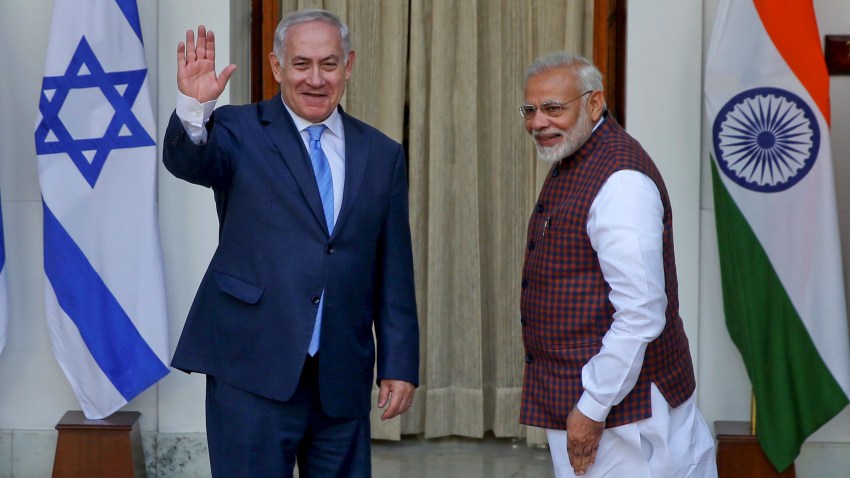Just a few hours after the Palestinian militant Islamist group Hamas launched its attacks against Israeli civilians on Oct. 7, Indian Prime Minister Narendra Modi posted a message on X—formerly known as Twitter—declaring himself “[d]eeply shocked by the news of terrorist attacks in Israel.” Speaking for India, Modi added, “We stand in solidarity with Israel at this difficult hour.”
The statement was almost startling for its timing and forthrightness. Not even U.S. President Joe Biden had expressed his support for Israel yet. There was no ambivalence in Modi’s words, no hedging, no waiting period for a committee to craft a diplomatic communiqué. And in case there was any doubt about whether the statement represented the position of the Indian government, Indian Foreign Minister Subrahmanyan Jaishankar promptly reposted the message to his followers.
In contrast, China appeared to ponder its response and ultimately decided on a starkly different stance. On Sunday, the day after the attacks started, with terrorist gunmen still inside Israel, the Chinese Foreign Ministry did not condemn Hamas. Instead, it urged “all parties” to remain calm, end hostilities and protect civilians. Then it called for the establishment of a Palestinian state.

